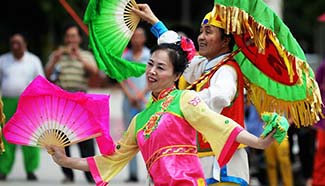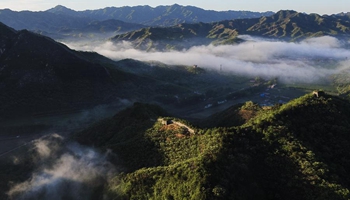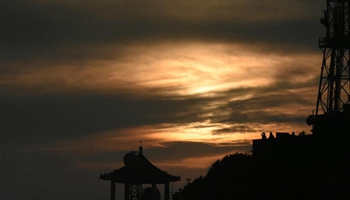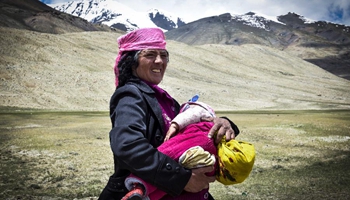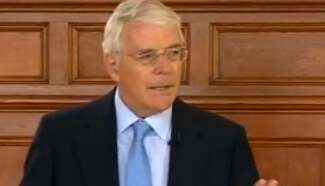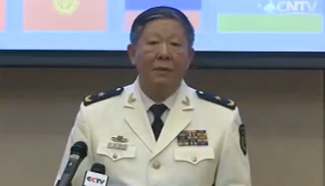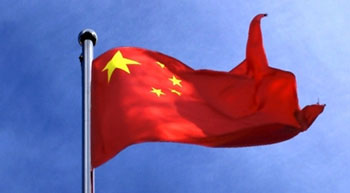ISTANBUL, June 11 (Xinhua) -- Turkey has been diligently working to expand its influence in Africa, a move to boost its ambitious strategy to emerge as a global actor in the region.
The increasing frequency of visits to Africa by top Turkish officials since the beginning of this year indicates the importance Turkey attaches to the continent.
As many as 10 African countries have been visited by top Turkish officials in recent months.
Turkey's interest in Africa is particularly fostered by the expectation that the continent will emerge, with its fast-growing economies and rich natural resources to be exploited, as a major global actor in the second half of this century.
During his recent visit to Uganda, President Recep Tayyip Erdogan revealed Turkey's perception of Africa saying, "nobody has probably any doubts that Africa will occupy a central position in the 21st century."
"Particularly sub-Saharan Africa is one of the target markets for Turkey. It is not only a source for raw materials, but also a strategic partner that could serve to diversify Turkey's energy suppliers," said Ufuk Tepebas, a Turkish lecturer in the Centre for African Studies at University of Basel in Switzerland.
The Turkish president returned only last week from his Eastern Africa visit covering three countries -- Uganda, Kenya and Somalia.
Foreign Minister Mevlut Cavusoglu was in Rwanda before joining Erdogan for the four-day visit.
In early March, Erdogan toured four countries in Western Africa -- Ivory Coast, Ghana, Nigeria and Guinea, while Senegal is another spot the president visited earlier in the year.
Erdogan was accompanied by several cabinet ministers and around 150 business people during his visits to the eastern and western coasts of the continent.
Turkey's interest in Africa dates back to 1998 when it launched an open-up policy toward the continent, but things actually turned serious when Turkey adopted in 2003 a strategy to develop economic and trade ties with the continent.
Turkey then declared the year 2005 as the Africa Year in the country, which was followed by the organization of the first Turkey-Africa Cooperation summit in Istanbul in 2008.
The second cooperation summit was held in Equatorial Guinea in 2014.
In 2008, Turkey became a strategic partner to the African Union which comprises all the 54 countries of the continent.
Turkey has been a member of the African Development Bank since January 2013, a status which relatively raises Turkish companies' chances to take part in public tenders and infrastructure investments.
Turkey had embassies in only 12 African capitals in 2009. The current figure is 39 and Ankara is aiming to open missions in all the 54 countries in the continent.
In return, the number of resident African embassies in Turkey, which was as low as 10 some five years ago, has also increased to 32.
It is also quite revealing as far as Turkish interest in the continent is concerned that the Turkish Airlines, Turkey's national flag carrier, is the foreign company flying to the highest number of destinations in Africa. It currently flies to 48 destinations in 32 countries in the continent.
Boosting economic ties is a major motivation for Turkey's Africa initiative. As Erdogan indicated during his latest visit to the continent, Ankara is ready for joint ventures in a wide range of sectors from defense to agriculture, tourism, construction and infrastructure.
At present, Turkey's total direct investment in Africa is 6.2 billion U.S. dollars. Since 2003, Turkey's trade with the continent has increased sevenfold, with around 40 percent of the growth achieved in the past five years.
The total trade volume, which was around 20 billion dollars in 2015, is far from being satisfactory considering that Turkey's trade volume with Germany alone has reached almost 42 billion dollars.
With its growing population and poor infrastructure, Africa is hungry for investments and Turkey is seeking to have a largish share in a market where it competes against giants like China, India, Brazil and the European Union.
With the Turkish economy being beset for the past several years by sluggishness as well as problems in the country's traditional export markets due to deteriorating political ties and civil wars in the Middle East, the Ministry of Economy has declared the year 2016 as the Year of Africa.
"New markets are vitally important for the Turkish economy. Africa is an attractive market with its growing economies and the increase in the number of urban consumers," said Hasan Ozturk, an Africa analyst at the Istanbul-based think tank Wise Men Center for Strategic Studies (Bilgesam).
Turkish Economy Minister Nihat Zeybekci, who was with Erdogan during last week's visit, told the Sabah daily that he expects Turkey's construction and energy companies as well as exporters of various machinery may well get lucrative deals in Africa.
Noting that only 10 percent of the people in Africa have access to electricity, the minister was quoted as saying "I can't imagine the huge demand in investments in electricity when the (10 percent) ratio will go up to around 60-70 percent."
The continent, rich in minerals, human resources and agricultural land waiting to be exploited, also looks quite promising as far as oil and natural gas reserves are concerned.
Six out of the 10 economies with the biggest growth rates in the past 10 years are in Africa.
"It seems to me we will be talking about huge developments in Africa some 30-40 years from now," stated Tepebas, who worked earlier as coordinator for the African Institute at the Istanbul-based Turkish Asian Center for Strategic Studies.
Analysts agree that Turkish interest in Africa has also to do with the country's ambition to become a global actor, a global power if possible, as the discourses of some top government figures have revealed.
According to Ali Engin Oba, a former Turkish diplomat who served as ambassador to Sudan and the Democratic Republic of Congo, the ambition to become an influential actor in global politics is the main reason for Turkey's interest.
In a display of Ankara's ambitions to become a global power, a Turkish naval task force composed of four warships and three helicopters toured around Africa in 2014.
During the 102-day campaign, the warships made port calls in 27 countries.
Good ties Turkey built with Africa until 2008 amply paid as Turkey got elected a temporary member of the UN Security Council. The support from African countries, which make up more than one fourth of the UN member countries, played a significant role in Turkey's election.
"Turkey's Africa policy is a success story," observed Oba, who is currently head of the Department of International Relations in Cag University.
Humanitarian aspect is also visible in Turkey's approach to the continent.
While expanding its influence, Turkey has been trying to win over hearts in Africa through aid and services provided by various humanitarian organizations and the Turkish Cooperation and Coordination Agency (TIKA).
As Turkey's development aid agency, TIKA has offices in 14 countries and is providing aid and services in 28 countries in Africa.
African countries, with a good number of them being among the world's least developed countries (LDCs), are among the main beneficiaries of Turkey's development aid.
In the past five years, Turkey has provided LDCs with more than 1.6 billion dollars in development assistance.
Across Africa, TIKA has so far implemented projects in such areas as health, agriculture, animal husbandry, education and training, capacity-building, well-drilling and clean water provision.
TIKA, which has completed projects in around 40 countries in Africa, also built hospitals and schools.
"If TIKA did not have the capacity to extend to Africa, we wouldn't be able to make projects to win Africans' hearts," Ahmet Davutoglu said several years ago when he served as Turkey's minister of foreign affairs.
As education is another front of Turkey's Africa initiative, around 4,500 students from Africa are currently receiving education in Turkey through scholarships provided by the Turkish government.
In Turkey, the total number of university students from Africa is 12,057, while 135 African professors currently teach in Turkish universities.
In their efforts to knit closer ties with Africa, Turkish officials have usually highlighted, as Erdogan and Cavusoglu did in their latest visits, Europe's colonizing past in Africa while stressing
Turkey has never had such motives toward the continent.
Cavusoglu said in Rwanda, "we see Africans as genuine and dependable partners. Turkey has no imperialist ambitions."
Turkish efforts to be more influential in Africa, however, are not a complete success story.
Despite efforts, the trade volume seems to have stuck around 19-20 billion dollars in the past several years. Turkey hopes to increase bilateral trade volume with Africa to 50 billion dollars, a figure the country had actually expected, based on unrealistic expectations though, to achieve by 2015.
"Turkey has relatively regressed in Africa (in recent years) and failed to adequately counter initiatives here by the continent's other strategic partners," said Tepebas from University of Basel.
According to Cag University's Oba, a Turkish diaspora should be created in Africa for Turkey to have a significant influence in the continent.
"Turkey should encourage its citizens to get settled in Africa," he remarked.
For Bilgesam's Ozturk, Turkey's biggest deficiency as regards Africa is a lack of information.
"Turkey does not sufficiently know Africa. No African language is taught in a university in Turkey," he said.
Despite the government's readiness to boost ties with Africa, the number of think tanks with a focus on Africa in Turkey is quite limited, while those focusing on the continent lack funding to conduct researches on the ground.

